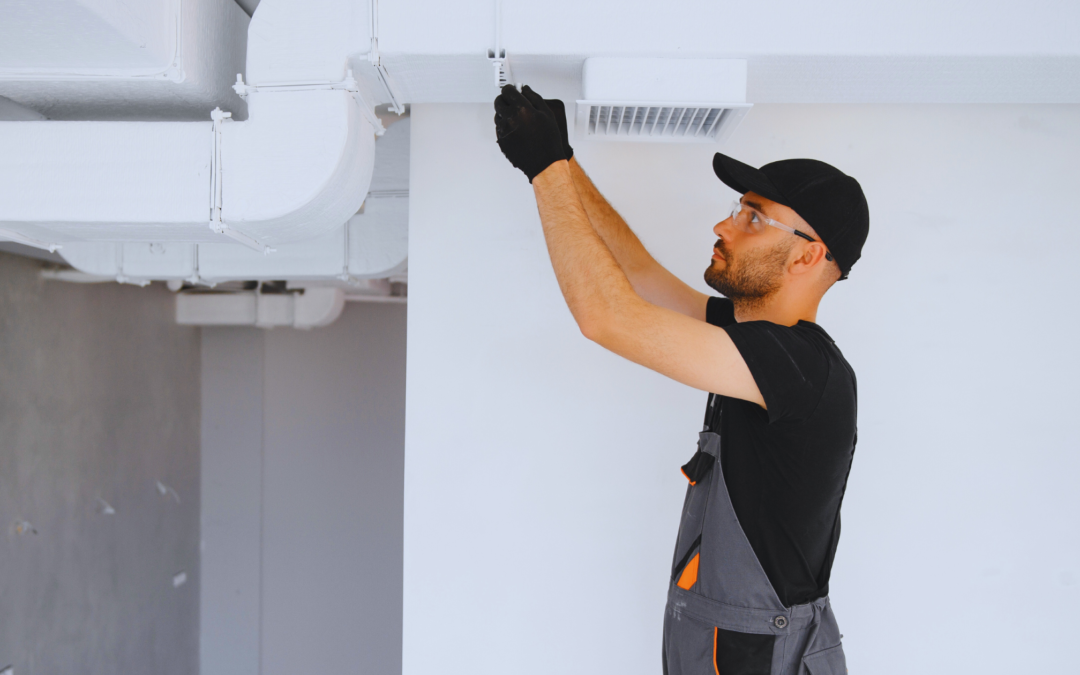The HVAC industry demands skilled professionals who can work safely with refrigerants and complex systems. Among the various credentials available, EPA (Environmental Protection Agency) certification stands out as one of the most critical requirements for any serious HVAC technician. This certification isn’t just a regulatory checkbox—it’s your gateway to career advancement, legal compliance, and professional credibility.
Whether you’re considering enrollment in an HVAC training program in NJ or already working in the field, understanding the importance of EPA certification can shape your career trajectory. This comprehensive guide explores why EPA certification matters, what it entails, and how it benefits both technicians and employers.
Key Takeaways
- EPA Section 608 certification is legally required for all HVAC technicians who handle refrigerants, making it essential for career entry and advancement
- Certification demonstrates professional competence, increases earning potential, and opens doors to specialized HVAC roles
- Quality NJ trade school programs integrate EPA certification preparation into their curriculum, providing students with immediate job readiness
Understanding EPA Certification for HVAC
EPA certification, specifically Section 608 certification, is mandated by federal law for anyone who maintains, services, repairs, or disposes of equipment containing refrigerants. The Clean Air Act established this requirement to protect the ozone layer and reduce greenhouse gas emissions.
The certification program covers four main areas:
Type I (Small Appliances): Covers equipment containing five pounds or less of refrigerant, including household refrigerators, freezers, and window air conditioners.
Type II (High-Pressure Appliances): Applies to high-pressure equipment like commercial refrigeration systems and air conditioning units.
Type III (Low-Pressure Appliances): Focuses on low-pressure systems, typically large chillers used in commercial buildings.
Universal Certification: Combines all three types, providing the broadest scope of work authorization.
Legal Requirements and Compliance
Federal law strictly prohibits working with refrigerants without proper EPA certification. Violations can result in significant penalties, including fines up to $37,500 per day for individuals and even higher amounts for companies. These aren’t empty threats—the EPA actively enforces these regulations through inspections and investigations.
For HVAC technicians, this means certification isn’t optional. Employers cannot legally hire uncertified technicians to work on refrigerant-containing equipment, regardless of their mechanical skills or experience. This legal framework makes EPA certification a fundamental requirement for anyone serious about an HVAC career.
Career Advantages of EPA Certification
Enhanced Job Opportunities
EPA certification significantly expands your employment prospects. Most HVAC employers list EPA certification as a minimum requirement in job postings. Without it, you’re automatically excluded from consideration, regardless of your other qualifications.
Certified technicians can work across various sectors, including:
- Residential HVAC services
- Commercial refrigeration
- Industrial cooling systems
- Automotive air conditioning
- Marine and aviation HVAC systems
Increased Earning Potential
Certified HVAC technicians typically earn higher wages than their uncertified counterparts. The certification demonstrates competence and legal compliance, making certified technicians more valuable to employers. Many companies offer pay premiums or bonuses for EPA certification, recognizing its importance to their operations.
Professional Credibility
EPA certification establishes your credibility with customers, employers, and peers. It shows that you’ve mastered the technical knowledge and safety protocols necessary to work with potentially dangerous refrigerants. This credibility can lead to increased customer trust, better job assignments, and faster career advancement.
Environmental Responsibility and Safety
EPA certification training emphasizes environmental protection and workplace safety. Technicians learn proper refrigerant handling, leak detection, and disposal procedures that minimize environmental impact. This knowledge is crucial as the HVAC industry transitions to more environmentally friendly refrigerants.
The certification also covers safety protocols for working with pressurized systems and potentially toxic substances. This training helps prevent workplace accidents and ensures technicians can identify and respond to dangerous situations appropriately.
The Role of Quality Training Programs
A comprehensive HVAC training program in NJ should integrate EPA certification preparation into its curriculum. Quality programs don’t treat EPA certification as an afterthought but as a core component of professional HVAC education.
At SJ Tech, students receive thorough preparation for EPA certification as part of their comprehensive HVAC training. This integrated approach ensures graduates enter the workforce fully prepared to meet industry requirements and legal obligations.
Certification Process and Maintenance
The EPA certification exam tests knowledge in four key areas:
- Core concepts (required for all certification types)
- Type-specific technical knowledge
- Safety procedures
- Environmental regulations
Once earned, EPA certification doesn’t expire, but staying current with industry changes and new regulations is essential. Continuing education helps technicians maintain their competitive edge and adapt to evolving industry standards.
Employer Perspective on EPA Certification
From an employer’s standpoint, hiring EPA-certified technicians offers several advantages:
Legal Compliance: Certified employees ensure the company meets federal requirements and avoids costly violations.
Insurance Benefits: Many insurance providers offer better rates to companies with certified technicians, recognizing the reduced liability risk.
Quality Assurance: Certification indicates that technicians possess fundamental knowledge of proper procedures and safety protocols.
Customer Confidence: Certified technicians enhance the company’s professional image and customer trust.
Industry Trends and Future Outlook
The HVAC industry continues evolving with new refrigerants, technologies, and environmental regulations. EPA certification provides the foundation for understanding these changes and adapting to new requirements.
Recent developments include:
- Phase-down of hydrofluorocarbon (HFC) refrigerants
- Introduction of lower global warming potential alternatives
- Enhanced leak detection requirements
- Stricter disposal and recovery standards
Technicians with solid EPA certification backgrounds are better positioned to navigate these industry changes and maintain their competitive advantage.
Your Path to Success Starts Here
EPA certification represents more than just regulatory compliance—it’s your entry ticket to a rewarding HVAC career. The certification demonstrates your commitment to professionalism, environmental responsibility, and continuous learning.
For those considering HVAC as a career path, enrolling in a quality NJ trade school that prioritizes EPA certification is essential. Programs that integrate certification preparation with hands-on training provide the most comprehensive preparation for industry success.
The HVAC industry offers stable employment, competitive wages, and opportunities for advancement. EPA certification ensures you can fully participate in these opportunities while contributing to environmental protection and public safety. Take the first step toward your HVAC career by choosing a training program that values EPA certification as much as you should.

